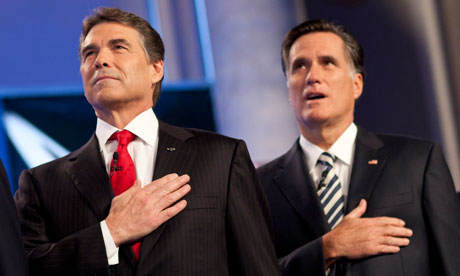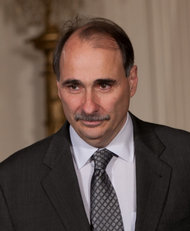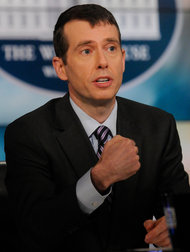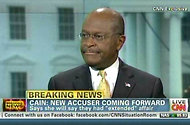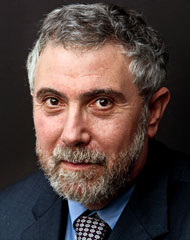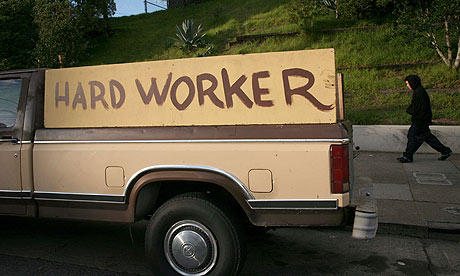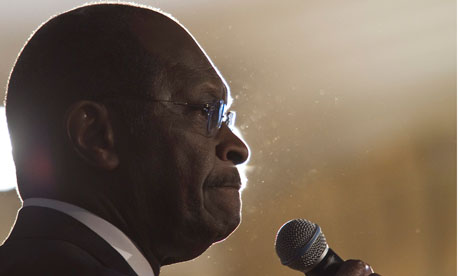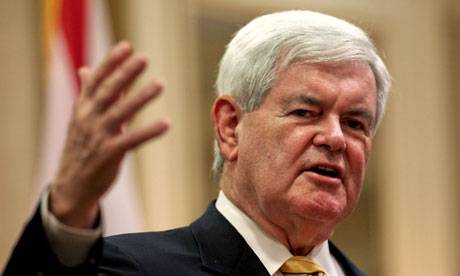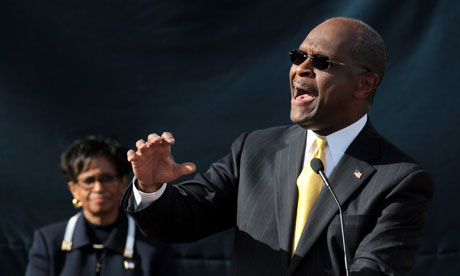Rutashubanyuma
JF-Expert Member
- Sep 24, 2010
- 219,470
- 911,173
- Thread starter
- #21
[h=1]Mitt Romney and Rick Perry accused of blatant untruths about Barack Obama[/h] Republican candidates criticised for TV ads that step over line
- Chris McGreal in Washington
- guardian.co.uk, Friday 25 November 2011 14.29 GMT
- Article history
Republican presidential candidates Rick Perry (left) and Mitt Romney have both defended their TV spots. Photograph: Benjamin J Myers/Corbis

Republican presidential candidates Mitt Romney and Rick Perry have been accused of telling TV viewers blatant untruths about Barack Obama.
The candidates deny their TV commercials are deceitful and dishonest but both ads selectively quote the president to make it appear he is saying one thing when he is saying another.
The advertisements have been widely scorned for crossing a line from a longstanding practice of political campaigns pushing the truth to its limits, over to misrepresentation. One ad appears to show Obama admitting he will lose next year's election if he talks about the economy. The other has him calling American workers lazy.
Romney's campaign ad is airing on TV stations in New Hampshire, which holds its primary in January. It shows the president saying: "If we keep talking about the economy, we're going to lose."
The ad appears to have the president admitting he is vulnerable on the economy. But Obama's words were from his 2008 campaign, and he was quoting a statement by a strategist for his Republican opponent, John McCain, who was the one on the back foot over the economy.
Perry's ad shows a short soundbite of Obama saying: "We've been a little bit lazy I think over the last couple of decades."
The ad switches to Perry saying: "Can you believe that? That's what our president thinks is wrong with America – that Americans are lazy. That's pathetic."
But a viewing of Obama's full statement shows that he was saying the US government had been lazy in attracting foreign investment.
Darrell West, director of governance studies at the nonpartisan Brookings Institution in Washington, said that Romney and Perry had gone further than previous campaigns in misrepresenting the truth.
"Those ads are blatant misrepresentations," he said. "They are much more egregious than what we've seen in the past. Typically candidates have tried to be close to the truth because they know journalists are paying attention, but with all the problems of the news industry politicians have concluded they can get away with murder." The president's spokesman, Jay Carney, said of the Romney ad, which is the first TV spot of his campaign: "It's a rather remarkable way to start. And an unfortunate way to start."
But the Romney campaign defended the commercial, saying they were merely turning the tables on Obama for having mocked McCain on the economy three years ago.
Gail Gitcho, Romney's press secretary, said in a blogpost on the candidate's website: "President Obama's campaign is desperate not to talk about the economy. Their strategy is to wage a personal campaign – or 'kill Romney'. It is a campaign of distraction.
"Now, the tables have turned – President Obama and his campaign are doing exactly what candidate Obama criticised [in 2008]."
Perry defended his ad while appearing on Fox News. "That's a fair ad, absolutely," he told host Bill O'Reilly. "He said 'We've been a little lazy.'"
O'Reilly challenged him by pointing out that Obama was talking about the government, "not the folks". But Perry brazened it out. "I think he's talking about Americans … I think that's exactly what he's talking about," he said.
Romney's campaigners are delighted at the attention the controversial ad has drawn, giving it a wider audience than it would otherwise have had. They appear to have calculated that hitting Obama on the economy outweighs whatever damage may be done by charges of untruths.
West is sceptical. "It plays to Romney in the sense that his ad is getting a lot of attention," he said. "But I think the Romney campaign is on very shaky ground to be running a false ad. Voters do pay attention to the veracity of ads."
But West acknowledged that politicians are less concerned about being exposed by reporters. "Politicians think that the news media have completely collapsed, based on the financial crisis, and so they are acting as if there's no accountability and they can say whatever they want," he said.
"They know the news media don't have the same credibility as they had in the past. They think they can say whatever they want and get away with it."
Romney's campaign has also borrowed a historic campaign ad from Margaret Thatcher's 1979 election campaign that declared "Labour isn't Working" and featured a long line of people waiting outside an unemployment office. Romney's campaign has substituted "Obama" for "Labour" and called it a tribute ad.
